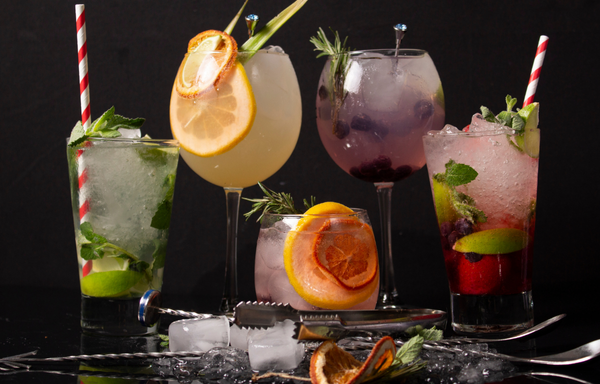

Alcohol and Health: Can You Still Enjoy a Drink?
Let’s get one thing out of the way first—alcohol is not a health food. It’s not helping your hormones. It’s not helping your liver. And it certainly isn’t helping your insulin levels. But life is also meant to be lived—and sometimes, that includes a glass of wine, a cocktail with friends, or a toast at a special event.
So the real question is: If you choose to drink, how can you do it in a way that’s least harmful to your metabolism? Let’s break it down.
Alcohol and Insulin: What’s the Connection?
Alcohol can affect insulin levels in a few different ways. The biggest factor depends on what you’re drinking and what else you’re having with it. While alcohol itself doesn’t usually spike insulin dramatically, many of the mixers, added sugars, and carb-heavy cocktails do.
On top of that, alcohol impairs liver function, which is a huge deal—your liver is responsible for maintaining stable blood glucose levels. When alcohol is in your system, your liver prioritizes metabolizing the alcohol over managing blood sugar, which can lead to blood sugar crashes or unstable levels.
What Alcoholic Beverages Spike Insulin?
Here are the main offenders:
- Beer: High in carbs and calories, beer is basically liquid bread.
- Sweet Wines: Moscato, dessert wines, and anything labeled “sweet” contains a lot of sugar.
- Cocktails with sugary mixers: Margaritas, daiquiris, and most mixed drinks are full of sugar (and often made with juice or syrup). Even the “skinny” ones are loaded with agave nectar.
- Hard ciders: Often labeled as gluten-free or “natural,” but they’re still loaded with sugar.
All of these drinks spike glucose and insulin levels. If you’re going to have a drink occasionally, these are best to avoid.
What About “Healthier” Options?
Not all alcoholic drinks are created equal. Some are far less likely to spike insulin—especially when consumed in moderation and without sugary mixers.
Better Options:
- Dry red wine or dry white wine: Minimal sugar, and red wine in particular contains polyphenols like resveratrol that may have some health benefits.
- Spirits (vodka, gin, tequila, whiskey): These don’t contain carbs or sugar by themselves. Just be careful with what you mix them with.
- Mixers: Stick with soda water, a squeeze of lime, or a splash of lemon. Avoid juice, soda, tonic water, or anything labeled “mixer.”
The Best Choices (If You’re Going to Drink)
If you’re choosing to have a drink now and then, these are your most insulin-friendly options:
- A glass of dry red wine (like Cabernet Sauvignon, Pinot Noir, or Merlot)
- Vodka or tequila with soda water and fresh lime. Zero sugar, zero carbs—just keep it simple.
- Whiskey or bourbon neat or on the rocks. No sugar, but be mindful of quantity.
Again, none of these are healthy. The point of this article is to help you make the best choices when you do decide to have a drink.
A Word on Binge Drinking
Even if your drink is “insulin friendly,” drinking too much in one sitting causes major metabolic disruption. Binge drinking impairs liver function, disrupts sleep, worsens insulin resistance, and leads to poor food choices. So when you decide to imbibe, enjoy in moderation—not excess.
My Personal Take
There’s been a lot of debate lately over whether any alcohol can be part of a healthy lifestyle. That’s something only you can decide. Personally, I come from an Italian family where wine is part of a meal, part of tradition, and part of life. I enjoy a glass of dry red wine occasionally, and I’m not going to stop. And I know I’m not less healthy because of it.






















